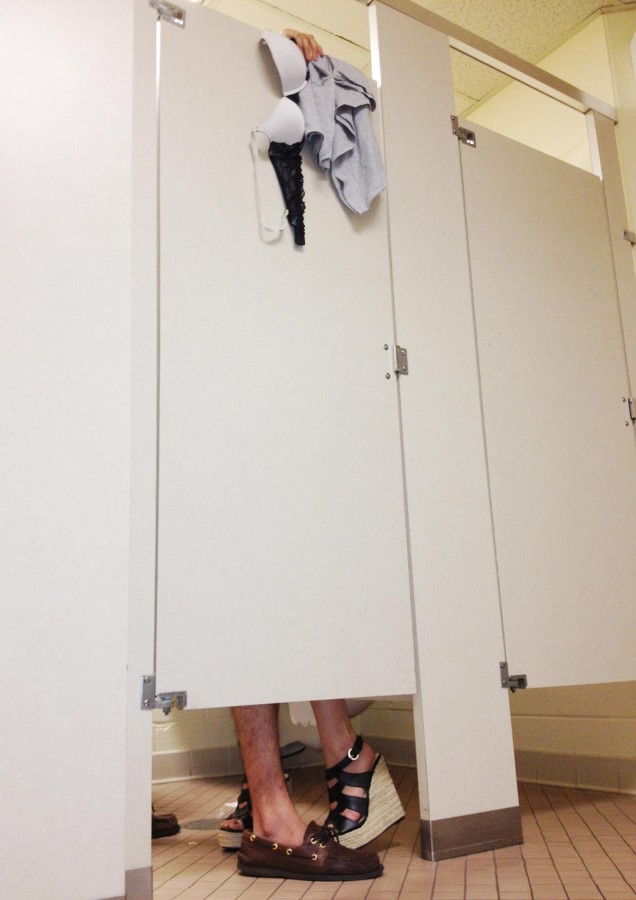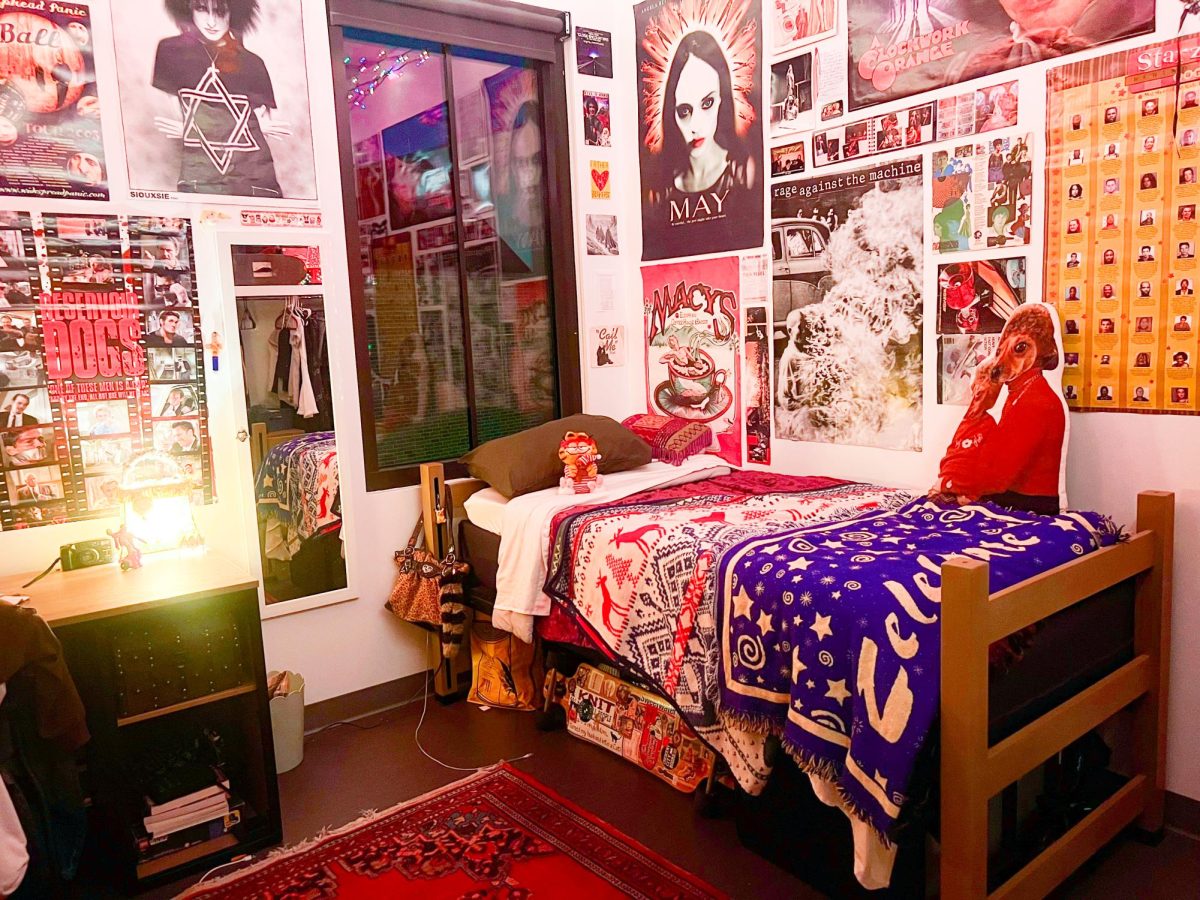A walk of shame isn’t as shameful anymore.
Hooking up, based on conversations with several Loyola students, has become a common and accepted part of college.
“I have no recollection of ever feeling any sort of shame resulting from that kind of situation,” said Pat Testa, economics junior. “I’ve never really understood that concept.”
Erik Miller, political science junior, would agree. “A hookup culture exists and we’re a part of it. I don’t look down on it. It’s just a reality tome.”
One Loyola student recalls a night when a friend met a guy in a bar, and ended up going home with him. “She woke up the next morning and found a letter next to the bed. It said, ‘Dear mysterious girl, you were sleeping so I didn’t wake you up. You can let yourself out. I have to go to class.’ He didn’t even remember her name. We thought it was hilarious.”
Another Loyola student remembers his first Mardi Gras, freshman year. “I somehow ended up in a shower in a mansion with a bunch of girls,” he said.
These kinds of experiences aren’t uncommon. New York University sociologist Paula England, who surveys students through an online college hookup questionnaire, has data revealing that college seniors report, on average, having eight hookup partners over the course of their four years in school.
But what does the phrase “hooking up” actually refer to? It’s thrown around loosely, holding different meanings for everyone, said international business senior Gracie Palombo.
“I think if you spend the night with him, that means hooking up. But it doesn’t have to mean having sex,” Palombo said.
Pat Testa, economics junior, shares a similar definition. “I would characterize it as something that is sexual in nature. That can include just making out, depending on the circumstances.”
With a school the size of Loyola, Palombo said that she feels hookups here tend to overlap more often than not.
“It seems to me that if you’ve hooked up with a guy, chances are your friends have probably hooked up with him, or someone you know has probably hooked up with him,” she said.
“I remember my freshman year, people counting how many people they could hook up with in one night,” said Caro Avila, business junior. “Guys would be like, ‘How many girls can we get with in one night?’ That’s when the hookup culture gets awful,” Avila said.
The casualness of hookups does have an alternative, but it’s one that these students admit they aren’t quite ready for: a relationship.
“I know especially for me, as I get older, I have less desire to be in a relationship until I feel like I have some sort of security in what I’m doing,” Testa said. “I don’t really feel like I do right now.”
Location can be a deciding factor for when students are ready to seriously date as well.
It’s the idea of, after college, if I move away, will my boyfriend just pick up and move with me?” Avila said. “Should I expect that, should I not? I’d rather find a relationship later when I know it’s going to last.”
Miller agrees that it’s hard to be tied down at this age. “That’s what makes relationships in college so difficult,” he says.
Palombo said that she and most students she knows choose to focus on themselves in college. “Whenever I’m going through my day, it’s about me. It’s never, ‘Oh, I need to consider what the person I’m dating is doing.’ Relationships are a selfless thing.”
The required selflessness makes the hook-up culture seem like the easier alternative, but Conor Hyatt, political science junior, said he respects those that enter relationships. “All support to the people who can rise above the hookup culture and date somebody,” he said. “I think, honestly, that’s a much better and safer idea.”
Phil Cork, music industry studies junior, stands by this idea. “I firmly believe in being in a relationship, and sharing day-to-day life with my best friend is better than any one night stand,” he said. Cork recognizes that a hookup culture certainly exists on college campuses, though.
A risk that comes with a hookup, according to Avila and Palombo, lies in attachment.
“If you’re going to hook up with someone and then get attached and realize that there’s nothing there, then that’s harming you,” said Palombo. “I know people who believe that those kinds of hookups get you nowhere, it just hurts you even more. But as long as both parties don’t get hurt, I don’t think there’s a problem with it.
When one partner begins to get attached, Avila said, the other individual often chooses to let go.
“It’s become a custom of ours to try not to get attached,” Avila said.
Palombo said that upon arriving at college, there’s a shift in many students’ mindsets.
“In high school, maybe you thought you’d go to college and find the person you wanted to marry,” she said. “After graduating, you’d settle down and have kids. Now, it’s different. I can be on my own; I can travel the world.”
Palombo said, she thinks it is hard to date at Loyola.
“We go to a great university, but it is difficult to find relationships because the city we are in promotes going out, getting drunk at bars and then hooking up.”
The nightlife culture does foster the spontaneity of a hookup, said Testa.
“Part of the fun of hookups is the spontaneity of it, the randomness,” Testa said.
It’s hard to avoid this type of culture, when you’re placing thousands of college students side by side, according to Hyatt.
“They put people in dorms right next to each other. It’s conducive to hooking up,” he said. “And then there’s The Boot. People don’t go to The Boot and say, ‘Oh, I’m looking for love tonight,” Hyatt said.
Cherie Lejeune can be reached at cllejeun@loyno.edu

Two students pose in a bathroom stall with a t-shirt and bra while holding hands. Hooking up is an accepted aspect of life for many Loyola students. (SHAMARA KING)








